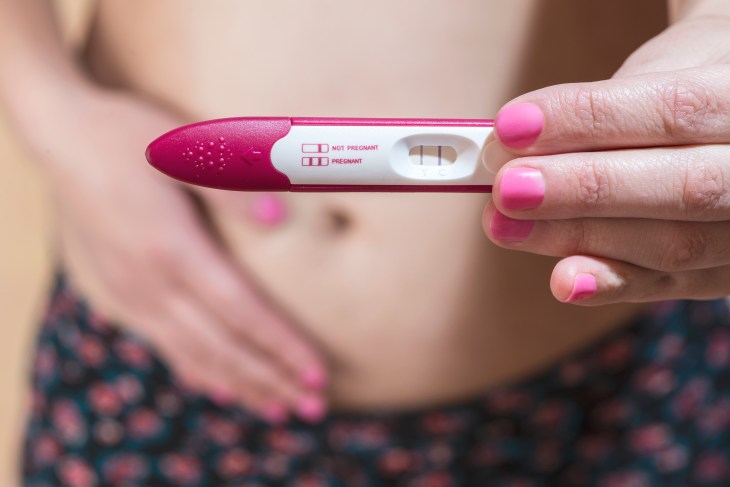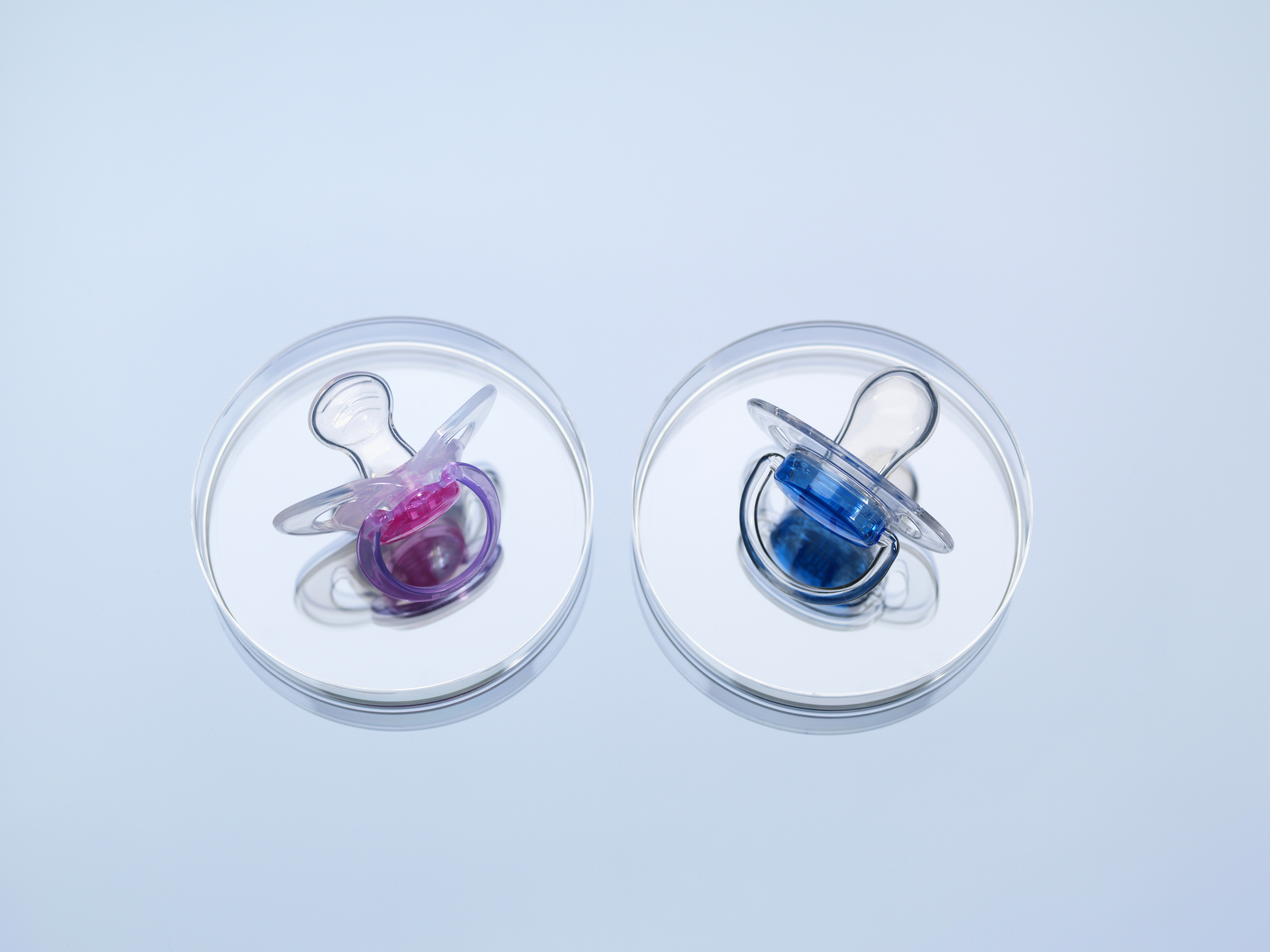

Image Credits: Westend61 / Getty Images
Women’s health has long been devoid of technological innovation, but when it comes to fertility options, that’s starting to change. Startups in the space are securing hundreds of millions in venture capital investment, a significant increase to the dearth of funding collected in previous years.
Fertility entrepreneurs are focused on a growing market: couples are choosing to reproduce later in life, an increasing number of female breadwinners are able to make their own decisions about when and how to reproduce, and overall, around 10% of women in the US today have trouble conceiving, according to the Centers for Disease Control and Prevention.
Startups, as a result, are working to improve various pain points in a women’s fertility journey, whether that be with new-age brick-and-mortar clinics, information platforms, mobile applications, wearables, direct-to-consumer medical tests or otherwise.
Although the investment numbers are still relatively small (compared to, say, scooters), the trend is up — here’s the latest from founders and investors in the space.
VCs want to help you get pregnant

Clue, a period and ovulation-tracking app, co-founder and CEO Ida Tin talks at TechCrunch Disrupt Berlin 2017 (Photo by Noam Galai/Getty Images for TechCrunch)
This fall, TechCrunch received a tip that SoftBank, a prolific venture capital firm known for its nearly $100 billion Vision Fund, was investing in Glow, a period-tracking app meant to help women get pregnant. Max Levchin, Glow’s co-founder and a well-known member of the PayPal mafia, succinctly responded to a TechCrunch inquiry regarding the deal via e-mail: “Fairly sure you got this particular story wrong,” he wrote. Glow co-founder and chief executive officer Mike Huang did not respond to multiple requests for comment at the time.
Needless to say, some semblance of a SoftBank fertility deal got this reporter interested in a space that seldom populates tech blogs.
Femtech, a term coined by Ida Tin, the founder of another period and ovulation-tracking app Clue, is defined as any software, diagnostics, products and services that leverage technology to improve women’s health. Femtech, and more specifically the businesses in the fertility and contraception lanes, hasn’t made headlines as often as AI or blockchain technology has, for example. Probably because companies in the sector haven’t closed as many notable venture deals. That’s changing.
The global fertility services market is expected to exceed $21 billion by 2020, according to Technavio. Meanwhile, private investment in the femtech space surpassed $400 million in 2018 after reaching a high of $354 million the previous year, per data collected from PitchBook and Crunchbase. This year already several companies have inked venture deals, including men’s fertility business Dadi and Extend Fertility, which helps women freeze their eggs.
“In the last three to six months, it feels like investor interest has gone through the roof,” Jake Anderson-Bialis, co-founder of FertilityIQ and a former investor at Sequoia Capital, told TechCrunch. “It’s three to four emails a day; people are coming out of the woodwork. It feels like somebody shook the snow globe here and it just hasn’t stopped for months now.”

Dadi, Extend Fertility and FertilityIQ are among a growing list of startups in the fertility space to crop up in recent years. FertilityIQ, for its part, provides a digital platform for fertility patients to research and review doctors and clinics. The company also collects data and issues reports, like this one, which ranked businesses by fertility benefits. Anderson-Bialis launched the platform with his wife, co-founder Deborah Anderson-Bialis, in 2016 after the pair overcame their own set of infertility issues.
Anderson-Bialis said he has recently fielded requests from seed, Series A and growth-stage investors interested in exploring the growing fertility market. His company, however, has yet to raise any outside capital. Why? He doesn’t see FertilityIQ as a venture-scale business, but rather a passion project, and he’s skeptical of the true market opportunity for other businesses in the space.
“It was one of those somebody-has-to-do-something-about-this moments and we had the means and the time,” he said. “The people who work at venture firms may have a lot of first-person experience with [infertility], so it’s easy to over-index and presume the market just has to be huge. The reality is, the fertility market can be a confined one. When it comes to apps, there’s no question lots of people can use them, but how much are people willing to spend? … How big of a business can you really build?”
Anderson-Bialis may be bearish on the prospect of a big returns from a fertility business but others are quite bullish. Gina Bartasi, the CEO of Kindbody, a full-stack provider of fertility services, including in vitro fertilization and egg-freezing, plans to go far and wide with the support of VC. Bartasi — who’s been building businesses in the fertility space since 2008, first with FertilityAuthority and then Progyny, a pair of venture-funded businesses that are still up and running — told TechCrunch she’s enjoying the sudden boost in attention from VCs. As someone on her third fertility startup, she’s familiar with how challenging of a sell these businesses can and have been to private investors.
Though Kindbody, which launched in 2018 and recently closed a Series A deal, has been critiqued for its aggressive millennial-focused marketing strategy, Bartasi’s goal, she explained to TechCrunch, is to empower young women to take control of their futures, which, in this case, may mean spending thousands of dollars on egg-freezing procedures.
“What patients really want is an end-to-end solution that’s everything from easy to access blood tests through mobile pop-ups to following women along the journey who want to freeze their eggs or who want to do IVF and being able to hand-hold and provide concierge medicine to them with a higher class of service,” Bartasi said. “A lot of the other startups are taking a slice of the market, but we believe it has to be vertical integration.”
Market opportunity
In the U.S., 1 in 8 couples have trouble getting pregnant and nearly 12 percent of women have sought fertility services in their lifetime, per the CDC. But because users interact with fertility services for a finite time period, customers aren’t likely to be sticky, posing a potential challenge to businesses.
The dubious market opportunity is what kept NEA partner Vanessa Larco from signing a term sheet in the space, though, in the weeks that followed our initial conversation around fertility startups, she invested in a business that’s nailed its target market and has ample room for growth. The deal has yet to be announced.

Gina Bartasi, chief executive officer of Kindbody, speaks during a Bloomberg West Television interview in San Francisco, California, U.S., on Thursday, Sept. 15, 2016. Photographer: David Paul Morris/Bloomberg via Getty Images
Like FertilityIQ’s Anderson-Bialis suggested, Larco’s personal experiences, namely the grueling process that was delivering her first child, sparked her interest in the fertility space.
“I got pregnant [in October 2017] and had a very unpleasant pregnancy and had very low empathy from my healthcare providers,” Larco told TechCrunch. “I became infuriated and decided to spend my entire maternity leave looking at femtech.”
Larco created a detailed market map and spoke to nearly every company looking to improve women’s experiences with pregnancy, infertility, and contraception. She did diligence calls and talked with private equity investors who were buying up and consolidating IVF clinics long before VCs got wind of the growing industry.
“When I think about enterprise tech, if there’s a stack that has a giant market size and something in it really sucks, there are a gazillion startups trying to disrupt it,” Larco said. “Then, here you have women’s reproductive health and the whole stack sucks and there are just two or three companies in each part trying to disrupt it. Then I look at men’s health and I think f*ck this.”
Room for improvement
Larco’s bet is NEA’s first in the fertility space. Other venture capital firms have been quicker to identify opportunities. Union Square Ventures, for example, has three portfolio companies focused on fertility or contraception: Modern Fertility, Nurx, and Clue.
“Fertility is appealing because it’s very opaque, it’s extremely high cost and it has a very big market, and those things can be interrupted,” USV general partner Rebecca Kaden told TechCrunch.
Kaden joined USV in 2017 and subsequently led the firm’s investment in Modern Fertility, which offers an at-home finger-prick hormone test for women thinking about getting pregnant.
“Where we’ve been most interested, which is very in line with USV as a whole, is this idea of transparent information and personal ownership of the process,” Kaden said. “Something Modern Fertility and Clue both have in common is they take information that women should be entitled to and just give them access to it. When you do that, you acquire users in quite a sticky way.”

Modern Fertility has raised $7 million in VC funding since it completed the Y Combinator startup accelerator in 2017
Headquartered in San Francisco, Modern Fertility launched its direct-to-consumer hormone testing business in 2017. It’s led by co-founder and CEO Afton Vechery, a former product manager at direct-to-consumer genetic testing firm 23andMe. Modern Fertility, a graduate of the Y Combinator startup accelerator, has raised a total of $7 million in VC funding from USV, Sound Ventures, First Round Capital, SV Angel, BoxGroup, Maveron, and more.
Four-year-old Nurx, a birth control delivery startup based in San Francisco and another Y Combinator graduate, has raised roughly $42 million from VCs, including USV, Kleiner Perkins, Lowercase Capital, and SV Angel. At the helm of Nurx is Hans Gangeskar, who believes creating affordable access to contraceptives is the first step to changing how patients interact and receive medication from their physicians. Echoing several of the other founders in the space with whom TechCrunch spoke, Gangeskar said his phone has been ringing off the hook as interest from investors continues to pick up.
“There are a lot more VCs calling. The last couple of months we’ve definitely noticed the interest in the space is heating up,” Gangeskar told TechCrunch. “There are real viable businesses to be built here and they should take a second look.”

Birth control delivery startup Nurx has raised a total of about $42 million to date
Clue, for its part, is a Berlin-based developer of a period and ovulation-tracking app backed by USV, Mosaic Ventures, Draper Esprit, and others. It has brought in $30 million since it was founded in 2012 by CEO Ida Tin.
Another mobile app that’s gained quite the buzz is Natural Cycles, which became the first-ever form of digital birth control with approval from the Food and Drug Administration in 2018. The Stockholm-based startup, led by a pair of doctors, Elina Berglund and her husband Raoul Scherwitzl, aims to help women avoid getting pregnant, or, if they are considering pregnancy, help them understand when they are most fertile. The app uses an AI-powered calendar that tells users when they should or shouldn’t have unprotected sex. For the product to work, women must measure their body temperature each morning and enter the information into the app.
Berglund told TechCrunch the method is 93 percent effective, a statistic that helped it gain support from VCs. In total, Natural Cycles has raised $38 million in equity funding.
“It started from a personal need for an effective natural method of contraception,” Berglund told TechCrunch. “We knew we wanted to have children in a few years and I wanted to stop using hormonal contraception so I tried to find such a method but I couldn’t. What I did discover is that temperature changes in a woman when she ovulates.”
Despite fundraises and the fast-growth of its subscription-based app, Natural Cycles has attracted significant criticism from those who doubt its efficacy and has been blamed for several unwanted pregnancies.
“I think when you do something new and innovative, there will be skepticism,” Berglund said. “I’m sure when the pill came in the ’60s there was a lot of skepticism … We’ve really tried to get trust by doing research, presenting our data, and working together with professors in the field of women’s reproductive health. We really want to do our part [to educate] the market at how effective different contraceptive methods are.”
Natural Cycles is currently fundraising and will likely close another financing round in 2019.
“I do think women’s health, in general, has been under-researched, underdeveloped, and underfunded and I am happy to see that that is changing now,” Berglund said.
Natural Cycles backers include e.ventures and EQT Ventures, a multi-stage VC firm headquartered in Stockholm, too. Lars Jornow, a partner at EQT Ventures, led the firm’s investment in Natural Cycles’ $30 million Series B funding in 2017.

What’s next
Many of the aforementioned businesses are still in the earliest stages of their journey, closing seed and Series A rounds amid plans to begin a rapid-scaling process in order to reach more women in the U.S. and beyond. Soon, we will see more women’s health tech startups procure larger, late-stage financings and, hopefully, earn the title of unicorn.
Of course, many of these startups will fail, too. Dubious investors and entrepreneurs like FertilityIQ’s Anderson-Bialis may be correct when they question the market opportunity for fertility businesses. What’s certain is those advocating for innovation in procedures like IVF, egg-freezing, and sperm storage, are as deserving of equity investments as the latest and greatest scooter startup or food delivery platform.
Natural Cycles’ Berglund said it best: “women’s health, in general, has been under-researched, underdeveloped and underfunded.” It’s about time that changed.